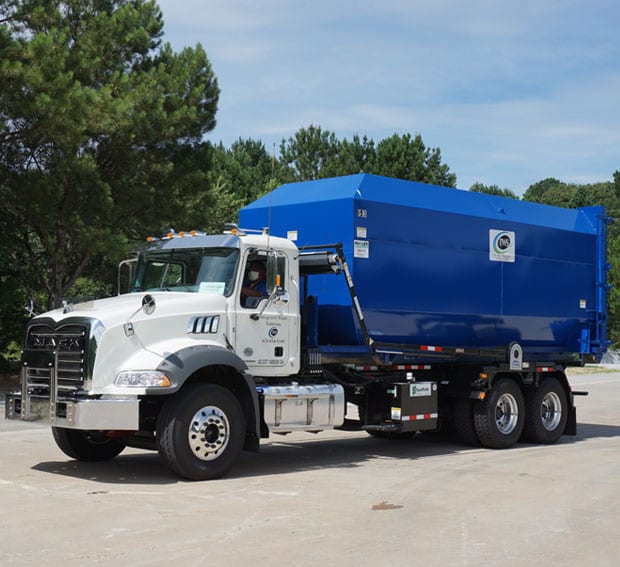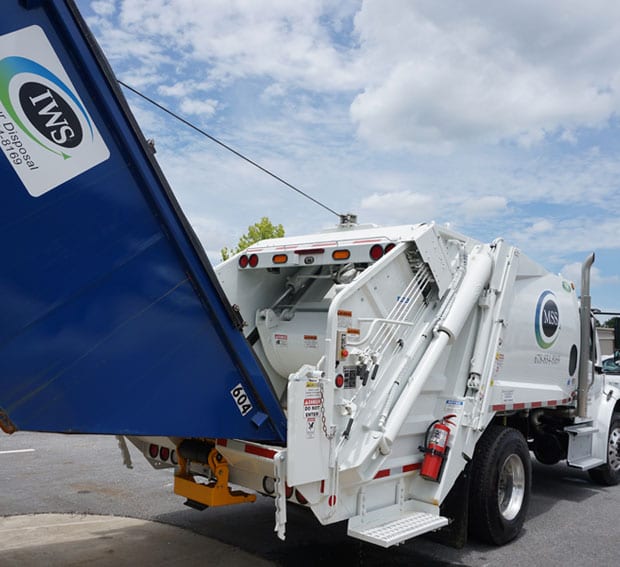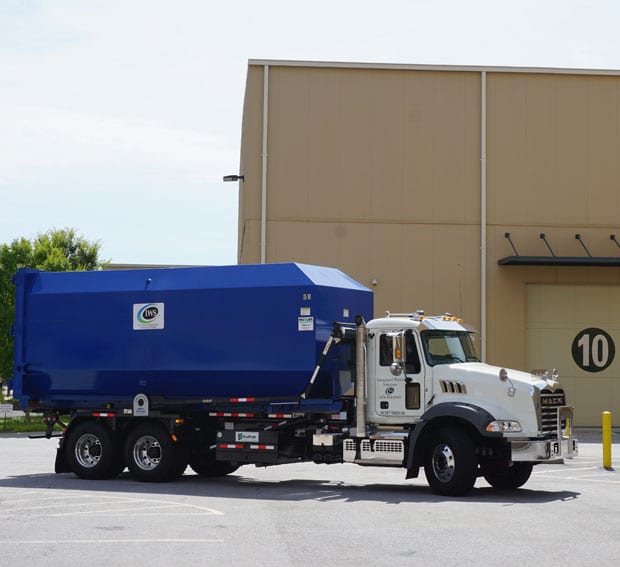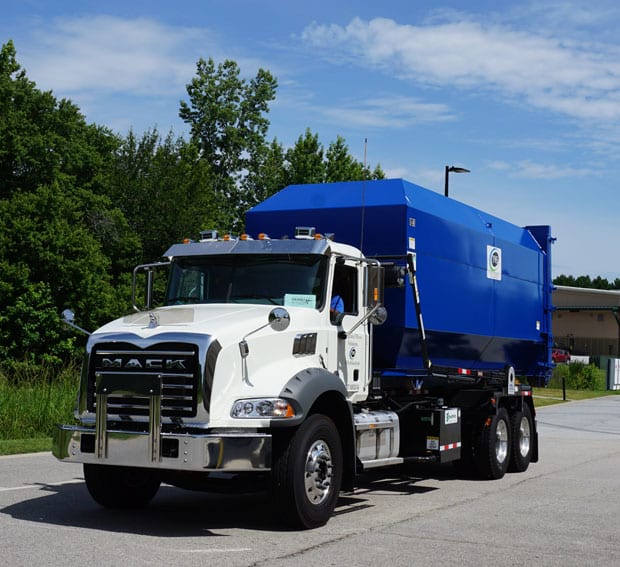
IWS roll-off containers are primarily used by industrial manufacturing plants, distribution centers, big box stores, construction sites, and film productions.
IWS is most proud of their responsiveness and flexibility. IWS President Cem (Jim) Drake explains the operation. “Some of our competitors operate like a cruise ship. While they’re good at what they do, if they need to pivot, it takes them miles to turn the boat around. We are a speed boat—if our client has an emergency, most of the time we can address it today. We can deliver a roll-off container right away.”
IWS also excels at advanced planning with clients to ensure a seamless waste experience and to avoid emergencies altogether. Strategic planning in the waste stream is a key feature of IWS’ service. Even in states where IWS does not operate, they provide consultative services to companies to plan for waste streams during productivity and operations – so all our clients get the benefit of a team of experts.

IWS also allows for pivots in the plan as it goes, and provides feedback to their clients on how to improve. For example, if IWS sees that there is a lot of corrugated cardboard in a load of roll-off trash, the team will contact that client about how to recycle to save money. Every client IWS has wants to reduce cost. And they all also want to recycle — why not combine both to create greater efficiency? Great Communicating and winning ideas are key features of IWS roll-off service.
IWS uses technology to ensure the best customer service. That includes GPS, cameras on the trucks, tablets for logistical direction and paperless routing. Because IWS always knows where their trucks are, they know exactly when you will be or have been serviced.
Consistent maintenance is another IWS aspect. Trucks and containers – the entire fleet – is continually serviced and kept to a high standard of operation.
Constant maintenance is another IWS feature.Trucks and containers – the entire fleet – is continually serviced and kept to a high standard of operation.
Preventing Double Handling of Trash and Recycling
For example, IWS took over a very large account, where the previous hauler hadn’t focused on the client’s operational efficiency. This increased the client’s cost—both safety concerns and double handling of trash.


The previous vendor was only collecting 15 hauls a day, even though the client needed 22 hauls. Because of this, their roll-off dumpsters were perpetually full, causing excess trash to be dumped throughout the dock area. was always full of trash, because the roll-off dumpsters were full. It created a safety issue. The client’s team brought waste down off their production line to load it on the trash. Because the roll-off dumpsters were too often full, waste couldn’t go right into the dumpster or the compactor. So they set trash on the dock, waited until the dumpsters swapped out and then loaded it again. So they have to stop what they're doing, and touch that trash again. The double handling of trash and recycling is a huge productivity problem.
IWS stepped into this problem, did a thorough analysis—from two hours before they opened production until two hours after—and solved the scheduling and logistics issues. Our team made sure that there were enough hauls each day to completely clear out the waste. Every day they started with a clean dock. It improved the safety of our client and the efficiency of their team. Ultimately, by scheduling more pick-ups to their location, we saved them money. While it may sound counterintuitive, having the right system in place is always better for a company. That’s IWS’ strategic advantage for our clients.
IWS is proactive about reducing scheduled hauls when needed, as well. Our team routinely checks the capacity of roll-off containers to figure out if it’s working as efficiently as needed for our clients. Smart trash and recycling handling routinely checks and rechecks to make sure the system is still effective.
